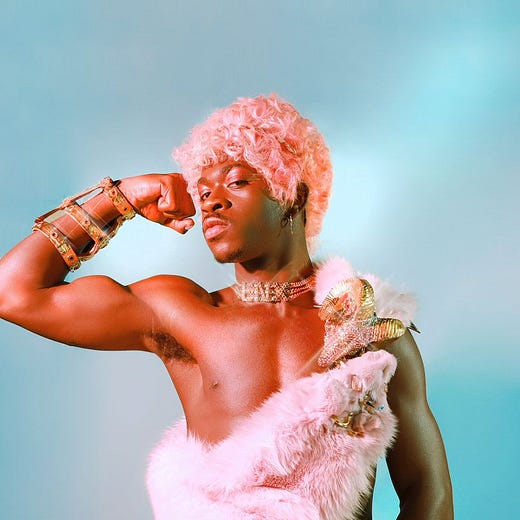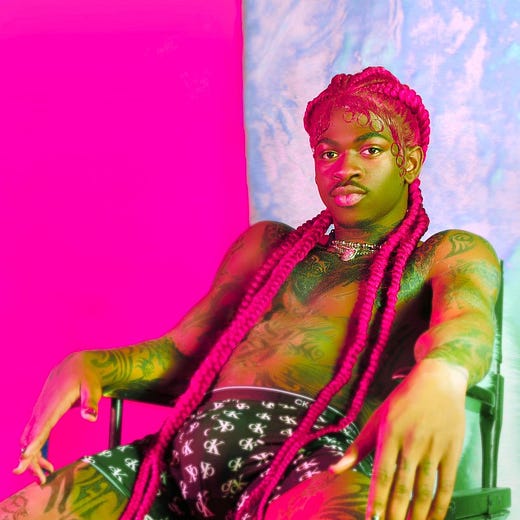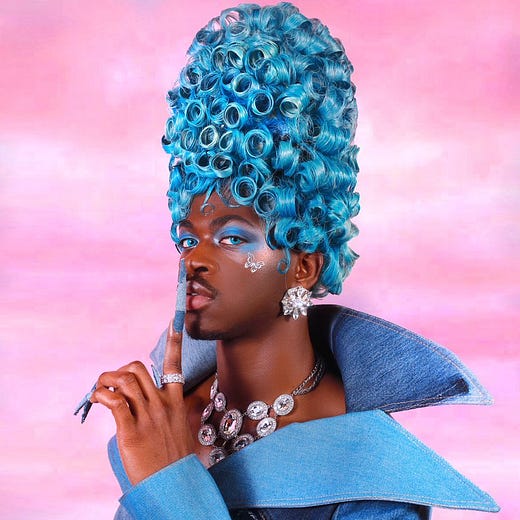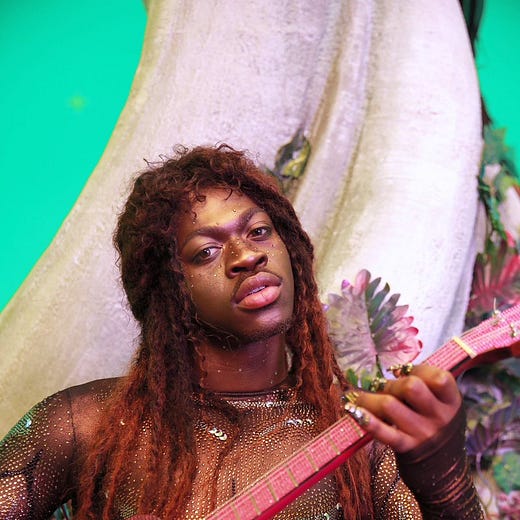New episode: Switched on Pop co-host Charlie Harding
Britney Spears, Lil Nas X, and four of Charlie Harding's favorite accounts to follow online.
Welcome to the brand new Follow Friday newsletter! This is your host, Eric Johnson, speaking. If you previously subscribed to the LightningPod & Follow Friday newsletter, then you should be all set up to receive this one.
Over the course of each week, I’ll share full transcripts of each segment from the newest episode of Follow Friday, complemented with links, pictures, videos, and more. And I’ll use this space at the top to share some liner notes and anything else that’s on my mind — about this podcast, or podcasting in general, or internet culture.
➡️ This funk cover band is a "party in a video"
Charlie Harding (Switched on Pop): Daft Funk, TikTok music, canceling Beethoven
Charlie Harding says he "procrastinates" by watching YouTube videos about sound design. But it's not an aimless hobby, because Charlie is a musician and the co-host of Switched on Pop, Vulture's podcast about the making and meaning of popular music.
"Reporting on music, I'm like, 'I need to understand every little thing about how the songs are made,'" he says. "I frequently will actually recreate songs before I think about how to report on them, because I almost want to get inside the creative mind of the person making it."
ERIC: Charlie, welcome to Follow Friday!
CHARLIE: Thank you! Hello!
ERIC: So glad to have you here. I want to start by talking about a mini-series of episodes that you and Nate are currently running on Switched On Pop about one of our greatest living icons of pop music, Britney Spears. And I do mean that earnestly.
I specifically wondered if you have any thoughts about how the internet has shaped Britney's career, this being a podcast about internet culture. Because she came up in the Napster era and then the recent end of her conservatorship was basically a holiday on Twitter, it felt like. Do you have any thoughts on how being a star in this age shaped her as a musician?
CHARLIE: I'm going to have to go out on a limb here because the conceit of our entire series was that she's the most overexposed figure in celebrity culture. And the thing that we have not been doing is paying attention to her music. So we just went back and listened to all of her biggest songs and intentionally ignored the larger sort of meta-narrative around her identity.
That said, there are two major ways that the internet has shaped our relationship with Britney Spears. One is I think it's important to note that she launched at the height of the CD era. And one of the challenges for people who were CD-era artists is that billboard ranking, sales, engagement, all the tools to get your music heard, fundamentally changed. Not just with Napster, but also with streaming.
Maintaining a dedicated audience, moving from CDs into streaming has been very challenging for people. And you can see it in her releases. The latest albums haven't performed as well.
I would be remiss if I didn't acknowledge the fandom around #FreeBritney who have played a significant part, not just in the awareness and ending of her conservatorship, but, I think, raising awareness about conservatorship more broadly. That could never have happened without internet communities.
[Recommended: ICYMI’s episode about #FreeBritney]
ERIC: And then looking at other musicians who are active today, who do you think is a pop musician who's either the best at using the internet or just especially linked to the internet? Because I feel like Britney kind of spans these two eras in culture and in music. But I guess thinking about internet-native musicians like Lil Nas X, or Lizzo, who do you think is the best at the internet?
CHARLIE: I think the best person on the internet, regardless of being a musician, is undeniably Lil Nas X. He knows how to hack people's brains for awareness and to manufacture controversies that are often quite humorous, but also have deeper meaning.
With his song, MONTERO (Call Me By Your Name), he is seen dancing on the devil and the religious right had a heyday on Twitter. Then the queer community was like, "Well, actually, this is the most amazing song we've ever heard." And you create these two vying groups online talking about this singular object, around his song, and he's just sitting back happy.
So I think Lil Nas X is the best. And then there are tens of thousands, if not hundreds of thousands of very talented people who build niche audiences in music that I couldn't name. Maybe a good example of that would be someone like, not niche, Adam Neely.
I say not niche because he has millions of followers across YouTube and other platforms. But he's a YouTuber who does the most in-depth stories about music theory, which you would think would be super niche. But the way that he reports them is so good that he has both Berklee School of Music graduates listening and watching his show, as well as people who know nothing about music.
So there are ways that people are able to find these super niche little categories. There's a YouTuber I know who makes guitar pedal demos on the harp. And it's a very popular channel. A lot of people pass through it. So I think there are so many that I can't name beyond that, because they're serving 5,000 people, very dedicatedly.
ERIC: That's a really good point, which is, what we used to consider to be the breakout success of topping the Billboard charts and all that. That's not necessarily the most important metric right now in terms of what success looks like online. You can have the most hardcore, passionate online fans, and that may be all you really need.
CHARLIE: I hate the term "creator" because I think it's too broad and often fails to capture ...
ERIC: I go back and forth on this.
CHARLIE: It doesn't capture people's particular talents. Like, if you're an extremely talented musician, you're not a "creator." You're a musician, but you probably are having to create videos and other things that engage people.
That said, creators have created meaningful competition to top celebrities, such that they are having to mimic and participate in those same platforms. The best example would be Jason Derulo, a pop star who is now a TikTok icon. He was like, "All right, I'm getting it on these dances because if I want to maintain relevancy and have a longer pop career..."
A pop career is probably a lot like the NFL draft; you're lucky if you get a couple of seasons and. So you see the biggest celebrities in the world are now mimicking what — sorry — content creators have been doing for years.







